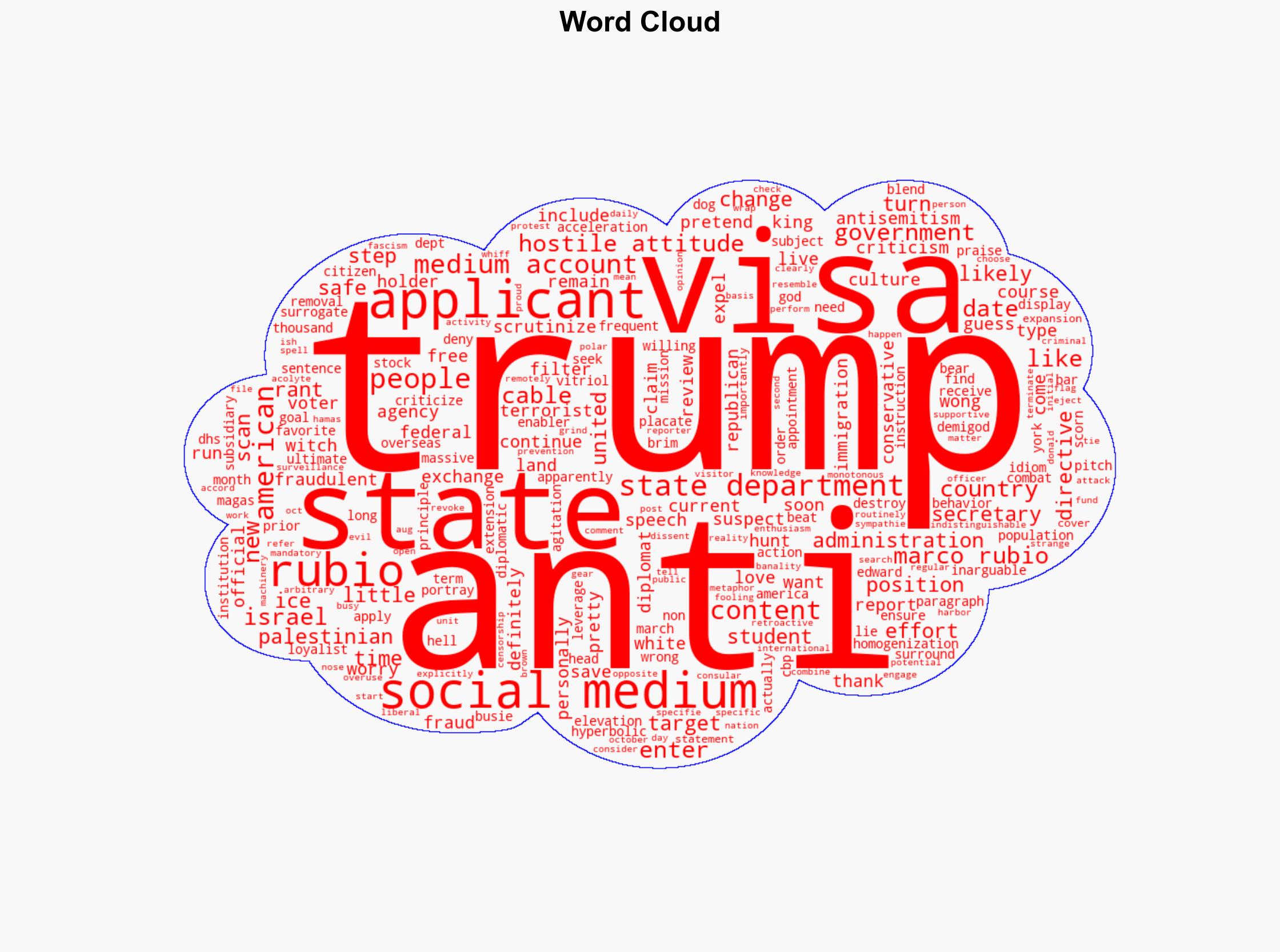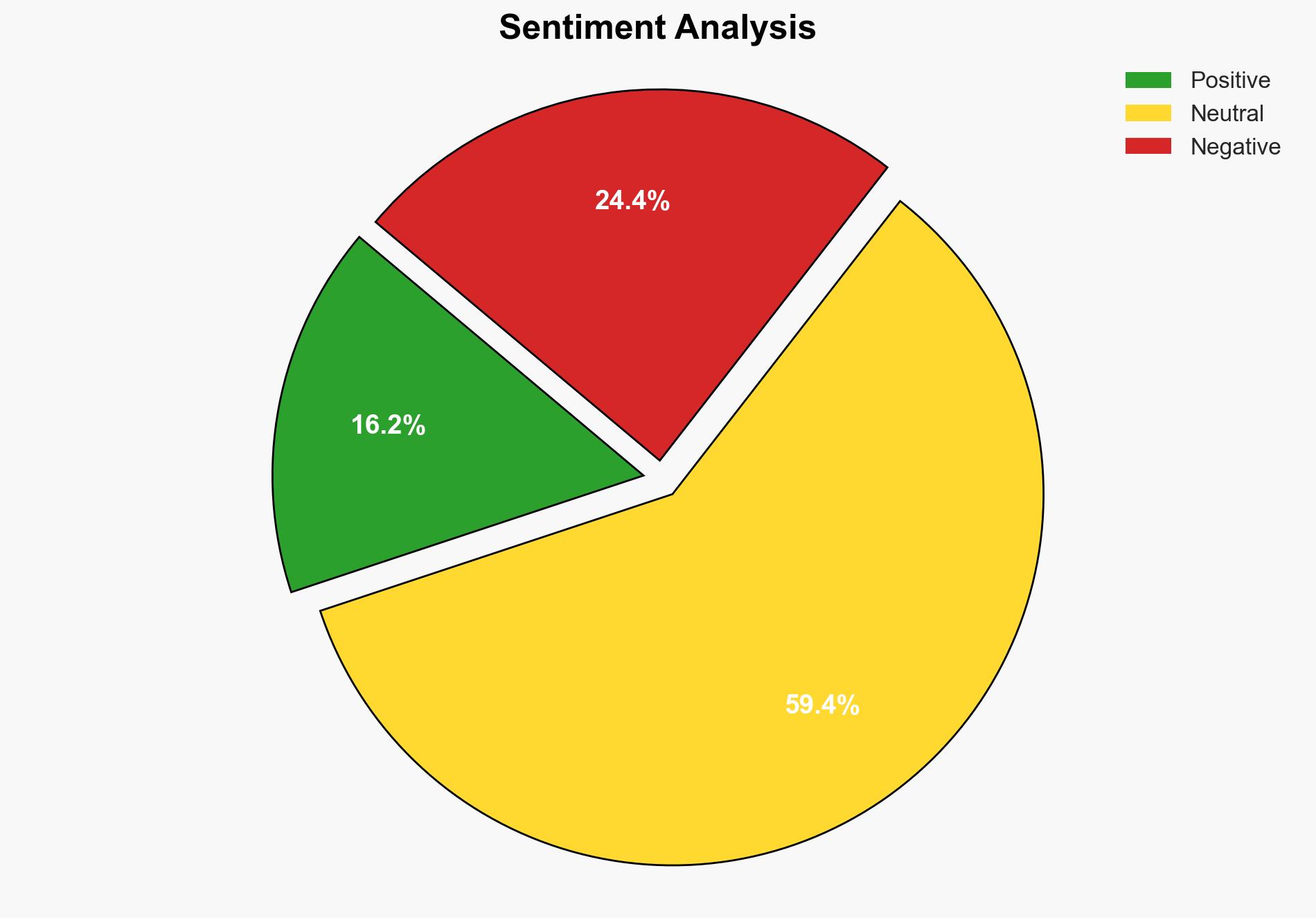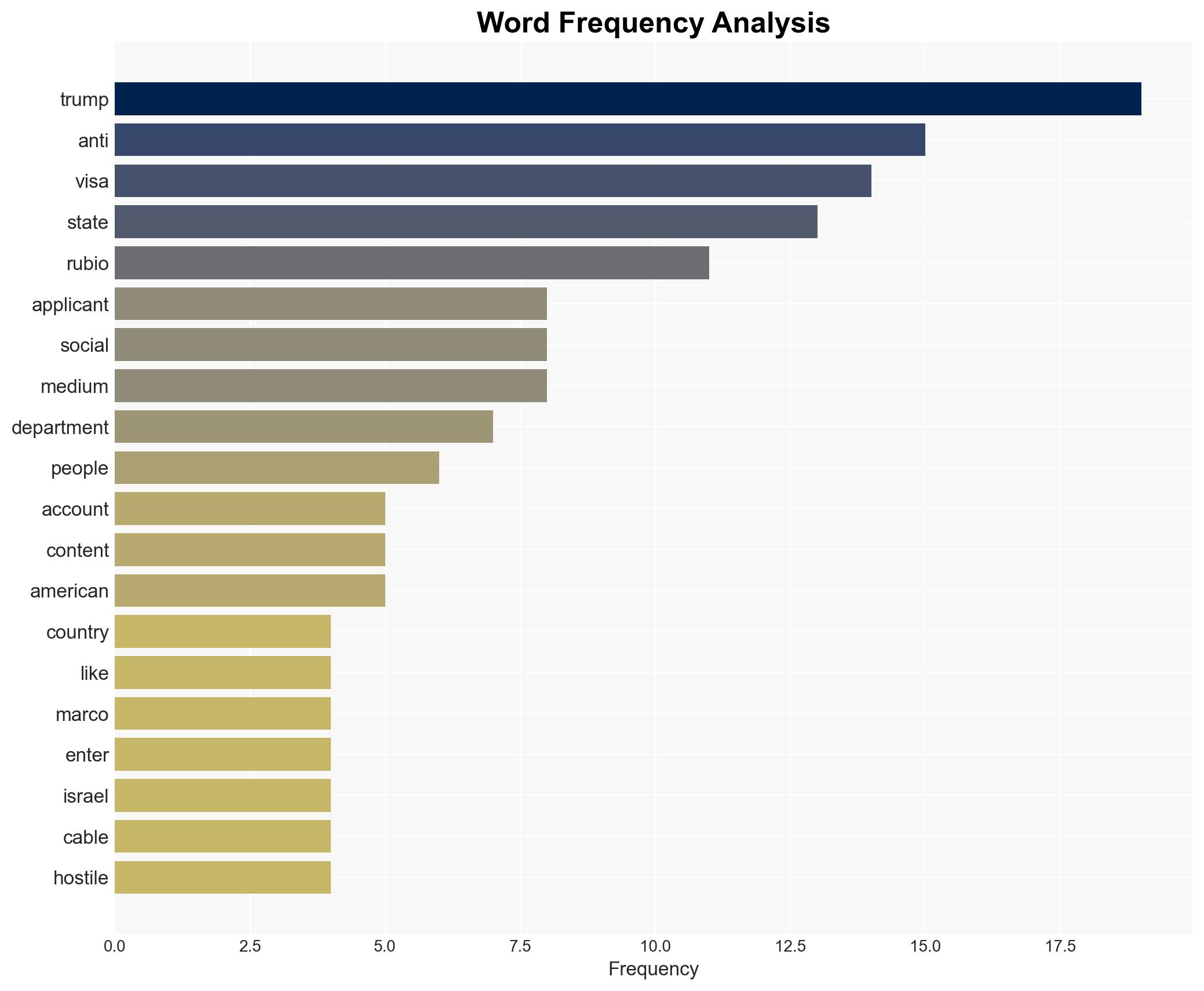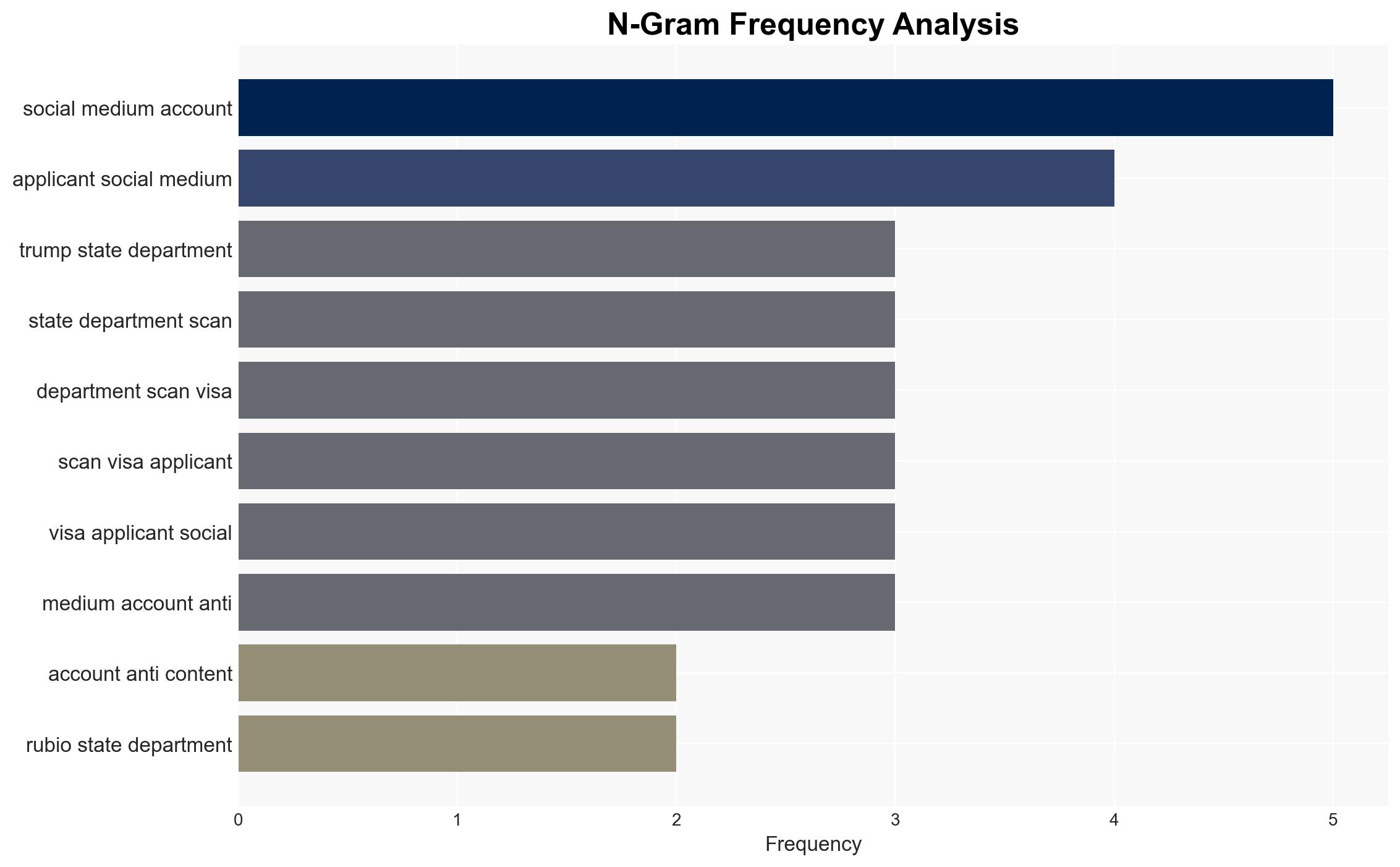Trumps State Department Is Scanning Visa Applicants Social Media Accounts For Anti-US Content – Techdirt
Published on: 2025-04-08
Intelligence Report: Trumps State Department Is Scanning Visa Applicants Social Media Accounts For Anti-US Content – Techdirt
1. BLUF (Bottom Line Up Front)
The U.S. State Department, under the current administration, has implemented a policy to scrutinize the social media accounts of visa applicants for anti-U.S. content. This initiative aims to bar individuals who express criticism of the United States or its allies from entering the country. The policy reflects a broader strategy to control immigration and suppress dissenting opinions. Immediate attention is required to assess the implications for international relations and civil liberties.
2. Detailed Analysis
The following structured analytic techniques have been applied for this analysis:
General Analysis
The directive to examine social media content of visa applicants is part of a larger effort to ensure that entrants to the United States align with the administration’s values. This policy could potentially lead to the exclusion of individuals based on their political beliefs, raising concerns about freedom of expression and discrimination. The focus on scrutinizing posts critical of the U.S. and its allies, particularly Israel, suggests a targeted approach that may affect diplomatic relations and international perceptions of U.S. immigration policies.
3. Implications and Strategic Risks
The policy poses several risks, including:
- National Security: While intended to enhance security, the policy may alienate allies and create diplomatic tensions.
- Regional Stability: The emphasis on pro-Israel sentiment could exacerbate tensions in the Middle East.
- Economic Interests: Restricting student and exchange visas may impact educational institutions and cultural exchange programs, leading to economic repercussions.
4. Recommendations and Outlook
Recommendations:
- Review and revise the policy to ensure it aligns with international human rights standards.
- Implement oversight mechanisms to prevent abuse and ensure transparency in the visa evaluation process.
- Engage with international partners to address concerns and mitigate diplomatic fallout.
Outlook:
Best-case scenario: The policy is refined to balance security with civil liberties, improving international relations.
Worst-case scenario: The policy leads to significant diplomatic rifts and economic losses, with increased criticism of U.S. immigration practices.
Most likely outcome: Continued scrutiny and potential legal challenges, with gradual policy adjustments in response to domestic and international pressure.
5. Key Individuals and Entities
The report mentions significant individuals and organizations, including:
- Donald Trump
- Marco Rubio
- Edward Wong
These individuals are central to the development and implementation of the policy, influencing its direction and execution.





